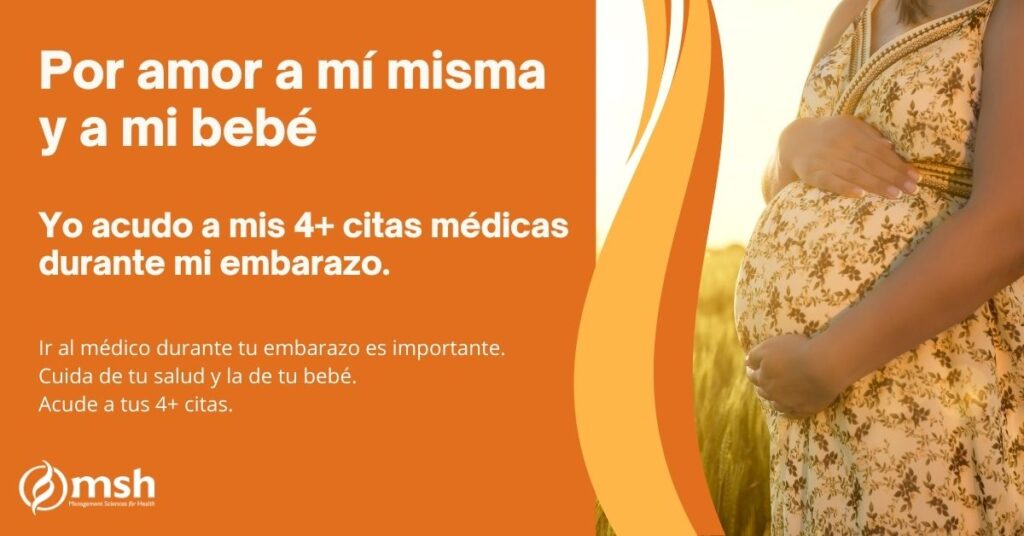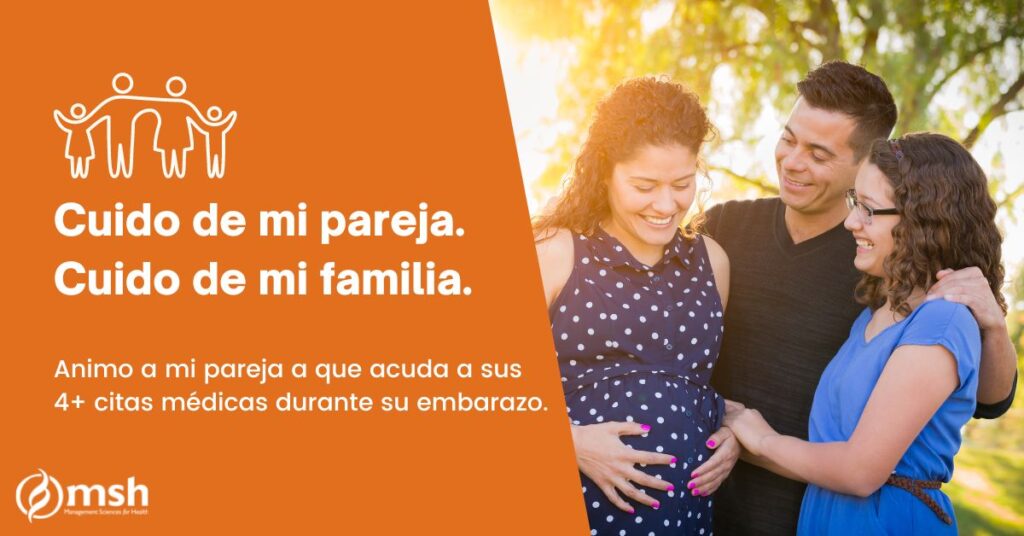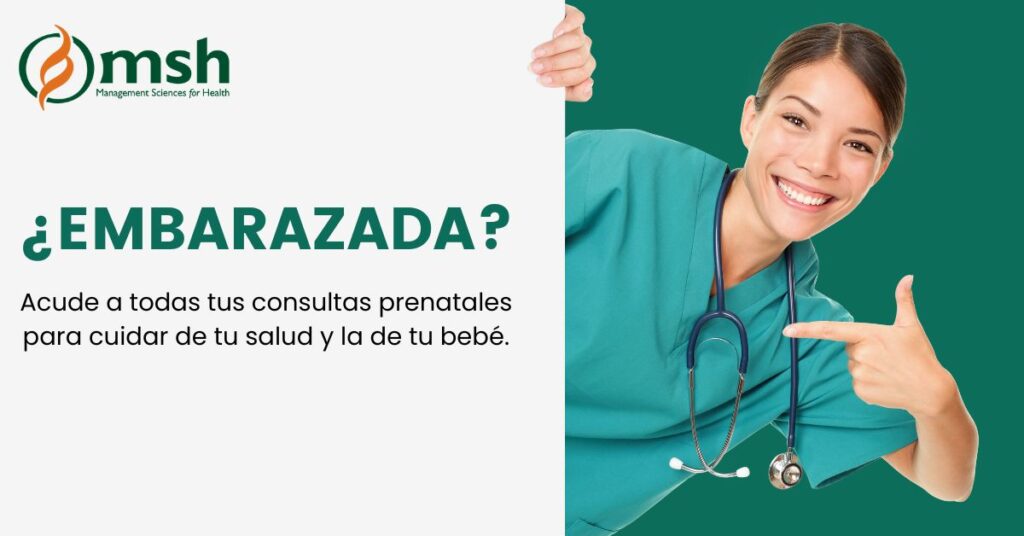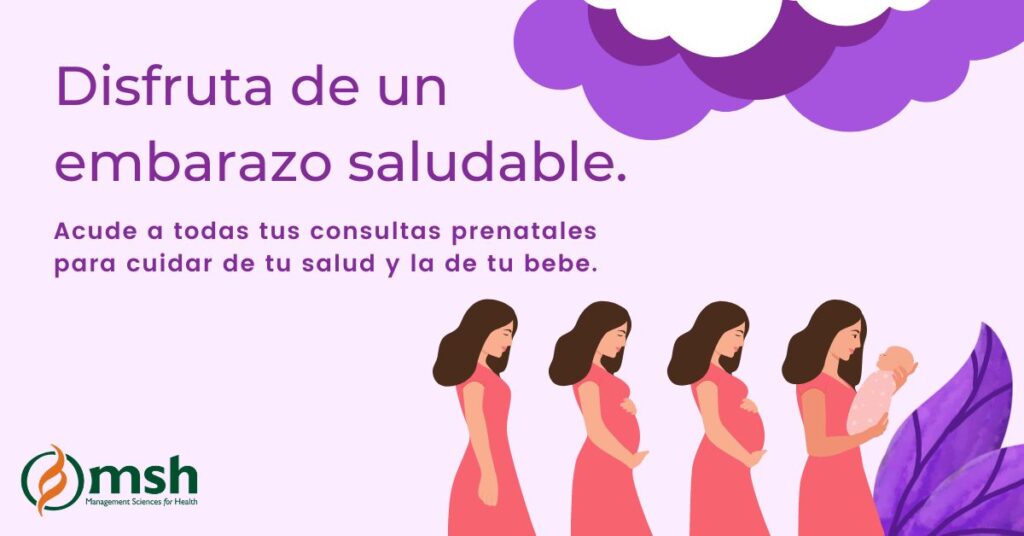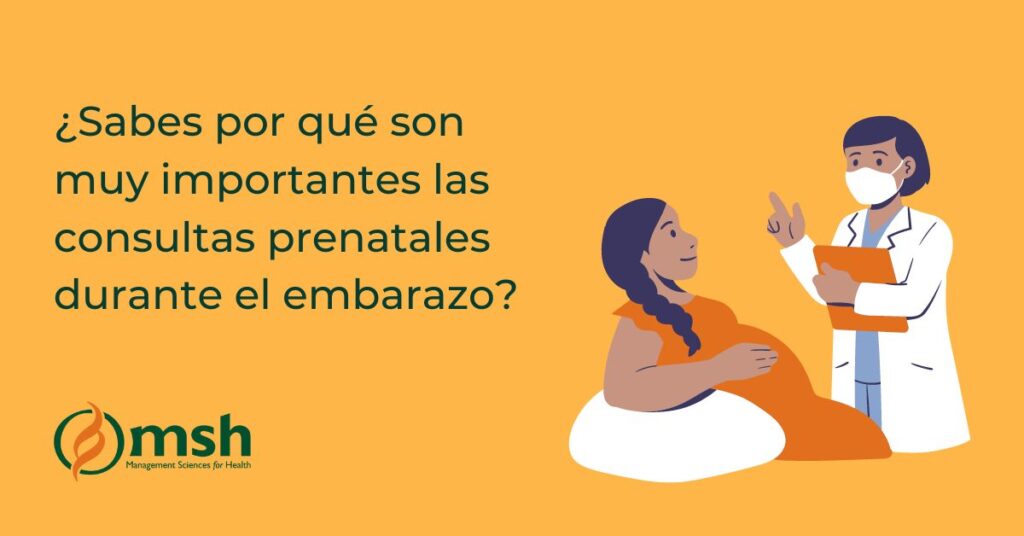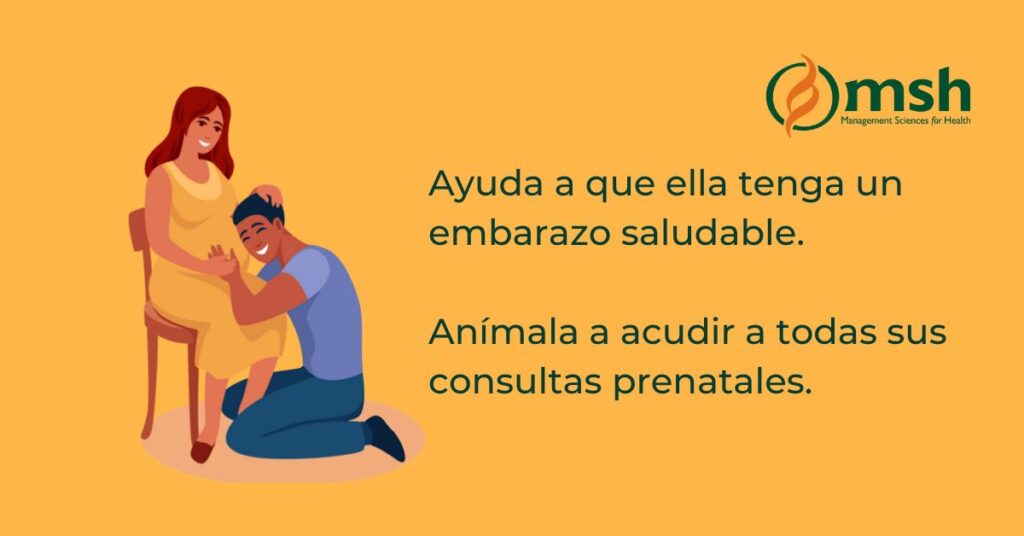Using Facebook Ad Campaigns to Raise Awareness About Antenatal Care in Guatemala
Using Facebook Ad Campaigns to Raise Awareness About Antenatal Care in Guatemala
In 2021, MSH partnered with Meta to pilot a social behavior change communications ad campaign on Facebook to increase COVID-19 vaccine uptake. This year, we expanded the pilot to further explore how digital campaigns and online messaging can help bolster our project activities in Guatemala, focusing on a technical area that parallels the MSH-led Healthy Mothers and Babies in Guatemala project, known locally as Utz’ Na’n.
The project aims to improve maternal health–in particular, adherence to antenatal care (ANC)–in Guatemala, where maternal mortality is high, especially for indigenous women. For this reason, we wanted to explore targeting women of childbearing age with messaging about the importance of ANC visits. We also opted to explore targeting men as a secondary audience, as lack of familial support or understanding–notably from spouses–plays a role in why some women may not prioritize attending ANC visits in this context.
- In 2022, MSH continued its partnership with Meta to explore how online messaging may contribute to a positive change in knowledge and attitudes about certain health behaviors.
- In Guatemala, our campaigns targeted women and men between the ages of 18-44 living in San Marcos, Quetzaltenango, and Guatemala City with ads on Meta platforms about the importance of attending prenatal checkups during pregnancy.
- Iteration is key: After making data-driven adjustments to our ads, Meta’s brand lift study tool suggested that our ad campaigns may have had an impact on women’s and men’s likelihood to say that going to the doctor for prenatal checkups is important.
Launching the Campaigns: Phase 1
We developed two separate campaigns to raise awareness around one overarching message: Going to ANC checkups during pregnancy is important to help keep mothers and babies healthy. We identified our target audiences as women and men between the ages of 18 and 44 residing in San Marcos and Quetzaltenango departments–the Utz’ Na’n project’s two main implementation areas in the Western Highlands–and Guatemala City, slightly adapting our ads to target our two audiences with separate but complementary messages.
Phase 1 of both the men’s and women’s campaigns ran on Meta’s platforms from August 24 through September 22, 2022. During this time, the women’s campaign reached nearly 2.6 million users in our target audience, and the men’s campaign reached more than 2.7 million users. Although reach was high for both campaigns, the results of our brand lift study, which aims to measure how the campaign impacted our target audiences’ awareness of the importance of ANC, were not encouraging. This signaled to us that our ads were not resonating, so we paused the campaigns to regroup.
Examples of two ads run during Phase I of the women’s (left) and men’s (right) campaigns:
If at First, You Don’t Succeed: The Importance of Iteration
When we looked at the performance of our individual ads, we noticed some common themes and made some key changes to both the messaging and the creatives. First, we simplified: The ads were crowded with too much text, and the messages were muddled. Second, we got creative: We refreshed our ads to include more bright colors and fun animations. Finally, we experimented: We incorporated new imagery of medical professionals as trusted messengers to help drive our top line home.
After making these changes, we launched Phase 2 of the women’s and men’s campaigns on November 3. By the time they ended on December 2, the women’s campaign had reached more than 2.8 million users and the men’s campaign had reached nearly 3 million–higher than the reach obtained in Phase 1. The results of the brand lift study were also more promising, providing a statistically significant result which suggested that both women and men who saw our ads were more likely to say that it is important to go to all recommended ANC visits during pregnancy than users who did not see our ads.
So, what does this tell us? These campaigns reinforced one of the key takeaways from last year’s COVID-19 vaccination pilot: the importance of iteration. We recognized that something was not working, so we adapted and tried again, and the overall results improved.
Examples of ads run during Phase II of the women’s and men’s campaigns:
Next Steps
We know that health behavior is complex, and it takes a lot to change it. There is still much to learn. However, the lessons from these campaigns will help MSH continue exploring possibilities to better harness our digital communications channels to effectively reach people in the communities where we work with important health messages that advance our mission: to help build a world where everyone has the opportunity for a healthy life.
